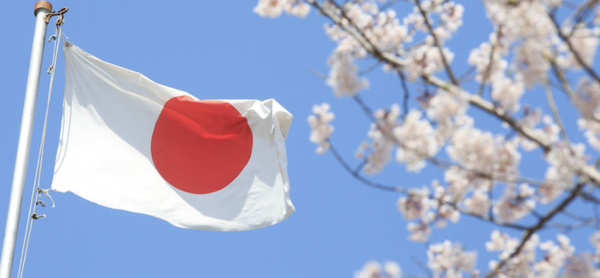Stricter Regulations, Growing Demand — Where Are Japan's Online Casino Users Headed?
Interest in online casinos continues to rise in Japan, even as legal restrictions tighten year after year. This paradoxical reality has driven many players underground, navigating a landscape that is increasingly fraught with legal and financial risk.
Far from suppressing demand, regulatory crackdowns appear to be driving users toward more anonymous alternatives. The more information is censored or restricted, the more certain users gravitate toward options that prioritize privacy and decentralization.
So, where is Japan’s online gambling audience heading next? Takashi Saito, an online gambling expert, with over a decade of experience, unpacks the trends with data-backed insight.
Demand Expands, Even as Legal Pressure Intensifies
For years, Japan's online casino industry existed in a gray legal zone, largely overlooked by regulators. That ambiguity is now giving way to a far more aggressive stance by authorities. The proliferation of unlicensed sites exploiting legal loopholes—and the influencers promoting them—has turned online gambling into a visible social issue.
The numbers tell the story. Arrests related to online casinos more than quadrupled: 59 in 2022, 107 in 2023, and a staggering 279 in 2024. Japan’s law enforcement is clearly shifting into high gear.
What stands out is not only the crackdown on illegal site operators but also on influencers who promote these platforms via gaming videos. Even when presented as “entertainment” or “information sharing,” many of these cases were legally defined as advertising—subject to prosecution.
Adding to this, a new bill scheduled to take effect on September 25, 2025, explicitly targets online casino-related activities. The legislation is expected to criminalize not only direct gambling but also actions like facilitating access or handling financial transfers. This will likely force overseas operators to reevaluate their entry strategies and compliance models for the Japanese market.
Yet, user interest shows no signs of waning. If anything, it’s expanding. A wider array of access points and payment solutions has helped diversify the user base. Estimates suggest over 3 million active online casino users in Japan today, with numbers growing, particularly in urban centers.
As restrictions tighten, so too does demand for anonymity and freedom. This tug-of-war between regulation and user desire captures the strange equilibrium of Japan’s current online gambling landscape.
The Rise of Crypto Casinos
One of the most significant shifts in Japan’s online gambling scene is the rapid rise of crypto-based casinos. Once considered niche, these platforms are now steadily attracting mainstream users.
At the heart of this shift is growing frustration with traditional payment systems. Japanese banks and credit card companies maintain a conservative stance toward online gambling, leading to transaction failures, blocked payments, and even frozen accounts. In recent years, regulatory pressure from the Financial Services Agency has only intensified these issues.
Cryptocurrency has emerged as a workaround. With faster transactions, increased privacy, and fewer restrictions, crypto aligns closely with the preferences of modern players—especially those in Japan, where users tend to be highly privacy-conscious and reluctant to share personal data.
Two currencies dominate: Bitcoin (BTC) and Tether (USDT). Bitcoin enjoys long-standing popularity among experienced users, while USDT’s stable value (pegged to the U.S. dollar) appeals to those wary of market volatility. Both are commonly used not just for deposits and withdrawals, but also for bonuses and decentralized recordkeeping.
This is not a passing trend. As regulations increase, so too does the appeal of decentralized, flexible alternatives. With Japan’s financial infrastructure ill-equipped to counter these shifts, crypto casinos are likely to remain a “practical alternative” for many users—at least for the foreseeable future.
For Operators, Adaptation Is the Real Challenge
For international operators eyeing Japan, the greatest barrier may not be regulation—it may be culture. Language localization alone no longer suffices. Japanese users expect platforms that reflect their values, preferences, and sensibilities.
Flashy bonuses and free spins that once attracted users now risk backfiring. Savvy players increasingly value trust and long-term reliability over quick wins and gimmicks.
This market evolution demands that operators raise the bar. True localization goes beyond language—it includes understanding etiquette in customer support, sensitivity to feedback, and even how promotions are perceived. Misreading these nuances can erode user trust quickly.
Importantly, this shift isn’t just about “evading” regulation—it’s about building sustainable trust in a market where skepticism runs deep. Japanese users are warming to the concept of online casinos, but many still carry concerns. Operators must reflect transparency and reliability in their content and user experience.
The Japanese market stands at a crossroads. Some operators are pulling out in response to increasing scrutiny. Others, however, see this as a chance to differentiate their brand—to become a platform of choice. The winners will not be the fastest to react, but those who can engage in meaningful, culturally aware dialogue with Japanese users.
A Market Still Worth Watching
Japan’s legal stance on online casinos remains ambiguous. While enforcement is intensifying, there are still no formal discussions on legalization or a licensing framework. The path forward remains uncertain.
Yet declaring the Japanese market “dead” would be premature. Demand is rising, and users are knowingly taking on risk to continue playing. This resilience is perhaps the clearest sign of Japan’s untapped potential.
With a mature digital culture, strong economy, and high user literacy, Japan is not merely a “gray market under pressure”—it’s a volatile but promising frontier. The future may be unclear, but the opportunity is real. For those bold enough to engage, Japan remains very much in play.
- B.E. Delmer, Gambling911.com














